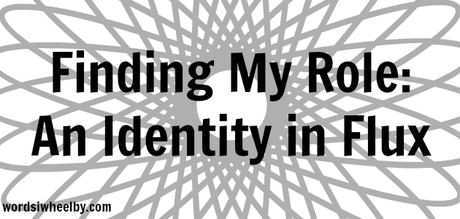
I have this recurring dream (nightmare?) that I've been cast in a main role in a play, it's opening night, and just as the curtains rise, I realize I don't know any of my lines or choreography. I can't figure out who to ask for help, where to move, or what I'm supposed to be doing. Then, I'll either find myself cluelessly bumbling about the stage in front of a bewildered audience, or the dream will get hazy. I never get to find out how the show ended up, or if I managed to pull myself together. Instead, I just wake up.
Most of the time, I'm able to shrug off my dreams and go about my day, but whenever I have the show dream it stays with me, hanging heavy on my shoulders. It's a pretty cliché dream, I know. I used to be convinced the dream was a sign that I was unprepared or had missed a deadline. I'd wake up disoriented and panicked, rushing straight for my calendar and email, frantically checking to see if something was wrong. Every time, my frenzy would be for nothing, and all would be well.
The dream recently happened again. I was wandering around backstage with no idea what to do or even what play I was supposed to be in. My body was thrown awake into its usual response of worry and a pounding heart. This time, instead of answering the panic, I sat with it. I stayed in bed and tried to figure out where this was really coming from.
I think I've finally figured it out.
It stems from a deep-seated insecurity I have - and one that I believe many of us share - that I just don't know what I'm doing. Feeling like a fraud, having imposter syndrome...there are plenty of ways to describe it. And it's really overpowering at times.
But I've been reminded lately that it hasn't always been this way for me. In a family email thread the other day, my uncle reminisced about my first-ever "speaking gig." My cousin invited tiny 8-year-old me and my mother to speak at a disability-themed event she coordinated for her high school. (These days, I do public speaking and my cousin is a stage manager. Life definitely knew where we were headed.) I don't remember too much about the day, but my uncle told me "the entire room of noisy, bored, and disinterested students actually stopped talking and focused on you as you spoke." I guess I was kind of a ham.
A couple years later, at age 10, I got it in my head to write a song for the Girl Scout talent show, which I oh-so-creatively titled "I'm A Girl." We interrupt this blog post to share an old school home video of this as proof that it actually happened and because my mother (editor-in-chief of the song) thought it would be funny to publicly embarrass myself with this. It's not captioned, but lyrics can be found here: I'm A Girl.
(A true feminist anthem, if I do say so myself. 😉 ) I remember purposefully waddling with my walker on to the stage, not particularly caring what people thought. I just wanted to sing. Hell if I'd ever do something like that now.
Anyway.
I did everything with relatively reckless abandon when I was younger, like most kids. I try to call up how I felt back then - that self-assuredness and confidence - but the more I embrace adulthood, the more inhibitions and insecurities appear. I think a lot of this has to do with part of my identity being in flux. I'm still referred to as a "youth" or "young person," and somewhat still think of myself that way. My mom still calls me a "budding" entrepreneur. People have said I'm an "emerging leader." Yet, people are also quick to tell me I'm mature and mistake me for being much older than I actually am. So I get confused sometimes. I laugh to myself and think that if I actively tried to assert my adulthood, it would come across to people as the equivalent of a little kid stomping her feet and loudly insisting she's "all grown up" and should be allowed to do whatever she wants. But if I try to assert my youth, then I just feel about a hundred years old. The struggle is real.
And then there's internalized stigma surrounding disability. Far too much of society chooses not to take disabled people seriously, and that's a big pain when my goal is to reach beyond the disability community into the mainstream. I mean, I talk and write about disability as someone who is ACTUALLY disabled and encounter non-disabled people who tell me I have no clue what I'm talking about. It's delightful.
So, back to my dream, which is what started this episode of Self-Reflection with Emily. When my fears come out to play in the middle of the night, there's not much I can do about it. During the day, though, I can fight back the best way I know how: taking myself seriously. (Not too seriously, though. That's boring.) And how I perceive myself is what matters most. Because when you own what you do, other people will, too.

